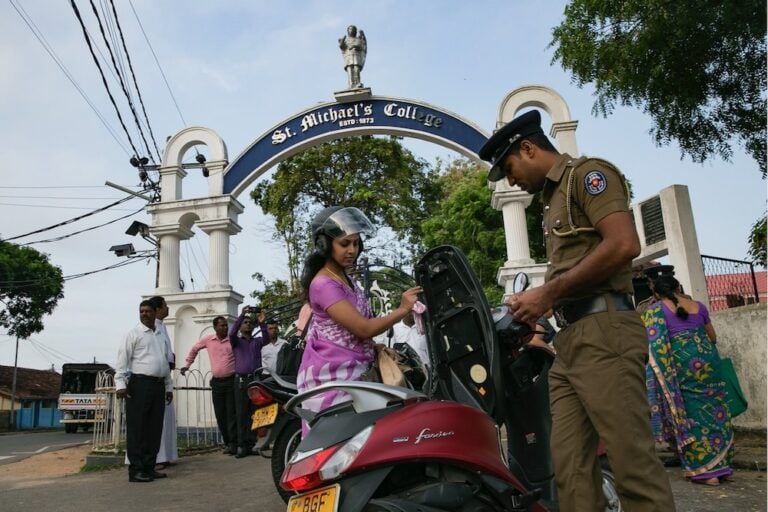(CPJ/IFEX) – In a 5 June 2000 letter to President Chandrika Bandaranaike Kumaratunga, CPJ welcomed her government’s decision to lift the prior censorship requirement for foreign media, but is deeply disturbed that the censorship regulations remain in place and that restrictions on local media continue. The emergency regulations were imposed on 3 May, following critical […]
(CPJ/IFEX) – In a 5 June 2000 letter to President Chandrika Bandaranaike Kumaratunga, CPJ welcomed her government’s decision to lift the prior censorship requirement for foreign media, but is deeply disturbed that the censorship regulations remain in place and that restrictions on local media continue.
The emergency regulations were imposed on 3 May, following critical military advances by rebel forces of the Liberation Tigers of Tamil Eelam (LTTE). Even before these advances, however, Sri Lankan authorities routinely denied journalists access to conflict areas, thus hampering their ability to report on the war.
Under the terms of the emergency regulations, censorship was imposed on all media. While foreign correspondents based in Sri Lanka are no longer required to submit their stories to a censor, “the government also expects that the foreign media would act with a sense of responsibility complying with the regulation,” according to the text of the government’s 5 June statement, carried by the Reuters news agency.
Local journalists have been subject to censorship provisions since June 1998, but the new regulations give the government the power to arrest journalists, seize their property, block the distribution of newspapers, and shut down printing presses on broadly defined grounds of “national security.” Local journalists have told CPJ that these are the most draconian censorship provisions ever enacted in Sri Lanka.
Already, two newspapers have been shut down under the regulations: On 19 May, authorities closed the offices of “Uthayan”, the only Tamil daily published in the northern city of Jaffna. On 22 May, police shut down a printing plant belonging to Leader Publications (Pvt.) Ltd., which owns the English-language daily “The Sunday Leader”, in order to stop the paper’s publication.
By closing down the printing press, authorities have also effectively suppressed “Irida Peramuna”, a Sinhala-language sister publication of “The Sunday Leader”, which has not been cited for any offense, according to Leader Publications.
CPJ finds it alarming that Sri Lankan residents now have less access to news and information about the civil war than people living outside the country.
Recommended Action
Send appeals to the president:
– calling for Her Excellency to lift all censorship restrictions immediately, and ensure that journalists are allowed to report freely in the conflict zones
Appeals To
APPEALS TO:Her Excellency Chandrika Bandaranaike Kumaratunga
President, Democratic Socialist Republic of Sri Lanka
Presidential Secretariat
Colombo-1, Sri Lanka
Fax: +94 1 333 703Please copy appeals to the source if possible.


